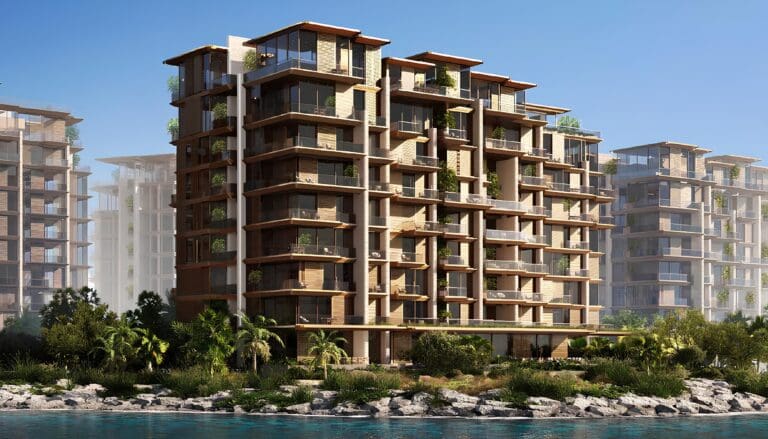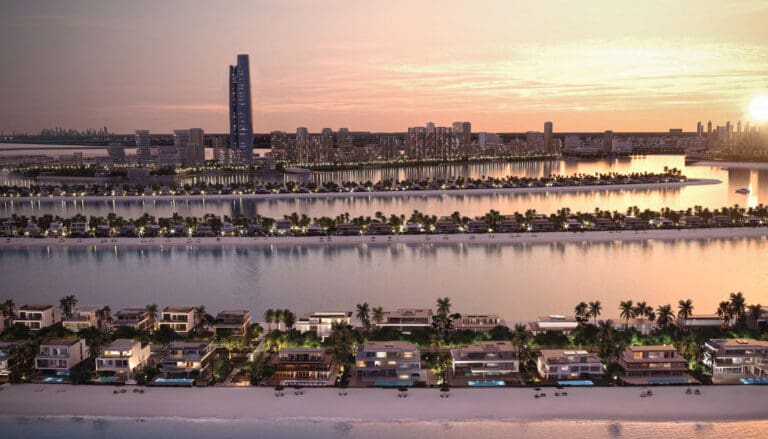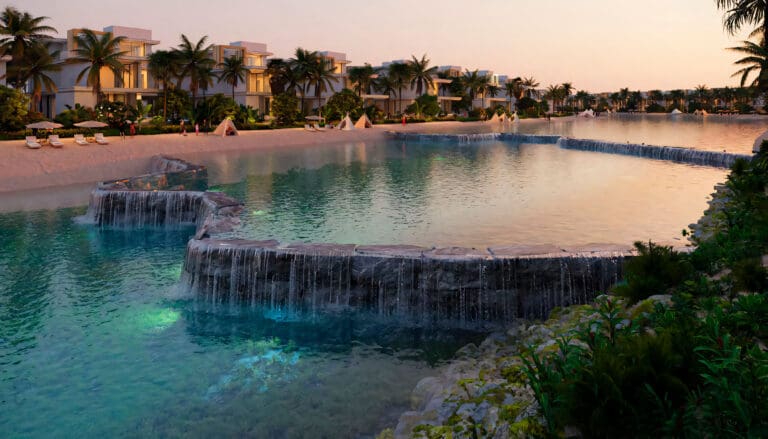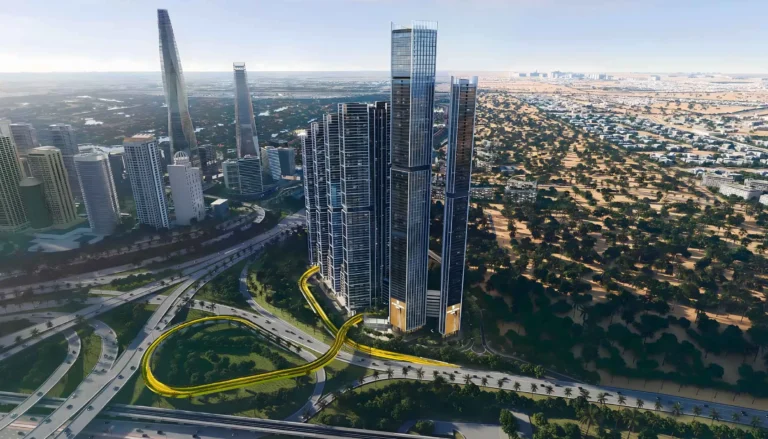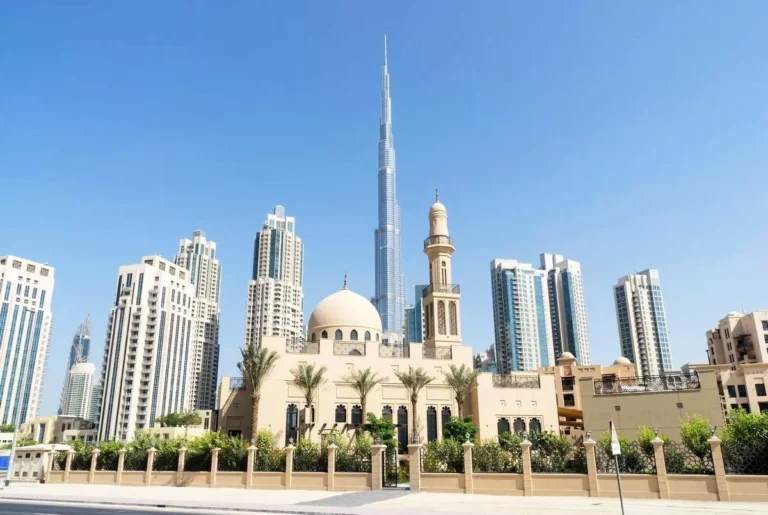Foreign Ownership Laws in the UAE Real Estate Market
Key Takeaways
- Foreigners can buy property in the UAE — but only in designated freehold or leasehold zones..
- Dubai and Abu Dhabi offer the most flexible rules, with full ownership allowed in top areas like Palm Jumeirah and Saadiyat Island.
- The buying process includes signing an MoU, obtaining a No Objection Certificate, and registering with the land department.
- UAE residence visas are available for investors — starting from AED 750,000 (2-year visa) or AED 2 million (10-year Golden Visa).
- Common pitfalls include hidden fees, overpaying, and misunderstanding ownership types — always use licensed agents and verify contracts.
The UAE’s booming property market and tax-friendly laws make it one of the hottest destinations for foreign investors. But here’s the real question: Can foreigners actually buy property in the UAE? Let’s unpack the legal landscape — from what the law says to how to avoid common traps.
Legal Framework for Foreign Ownership in the UAE
Before diving into the where and how, it’s crucial to understand the foundation. Property ownership laws in the UAE are set by each emirate, not the federal government. That means rules vary depending on whether you’re buying in Dubai, Abu Dhabi, or Sharjah.
For example:
- Dubai operates under Law No. 7 of 2006, which permits foreigners to own freehold property in designated areas.
- Abu Dhabi made major reforms in 2019 and 2021, expanding real estate ownership rights for foreign nationals.
- Sharjah allows only long-term leaseholds (up to 100 years), not freehold ownership.
So, while there’s no one-size-fits-all rule, the trend is clear: more and more emirates are opening their doors to foreign investment.
Can Foreigners Buy Property in the UAE?

Short answer? Yes — but only in designated areas. The UAE has special freehold zones where foreign nationals (both expats and non-residents) can legally purchase real estate.
Foreigners can choose between:
- Freehold: Full ownership of the property and the land — forever.
- Leasehold: Long-term leases (usually up to 99 years), but no land ownership.
Some emirates also offer:
- Usufruct: The right to use a property for up to 99 years without making changes.
- Musataha: A right to build or develop on land owned by someone else, usually granted for 50 years and renewable.
Note: Each emirate applies these differently — so location matters more than ever.
Rules for Foreigners Buying Property in Dubai
Dubai was the first emirate to allow foreign property ownership, and it remains the most foreign-investor-friendly market in the region.
Freehold Areas in Dubai
Foreigners can own 100% of property in areas like:
- Palm Jumeirah
- Downtown Dubai
- Business Bay
- Dubai Marina
- Jumeirah Village Circle (JVC)
These zones are updated by the Dubai Land Department (DLD) and offer full ownership rights — with no requirement for a local partner.
Dubai has over 40 freehold zones for foreign buyers — ranging from luxury beachfront apartments to affordable family communities.
Check our dedicated guide for the full list of freehold districts in Dubai.
What Can You Buy?
- Apartments
- Villas
- Townhouses
- Commercial spaces
- Land (in select freehold zones)
Legal Process in Dubai: Step-by-Step
- Choose a registered agent (check if they’re licensed by RERA).
- Sign a MoU (Memorandum of Understanding) with terms of sale.
- Obtain a No Objection Certificate (NOC) from the developer.
- Register the transaction with the DLD.
- Pay fees: 4% DLD transfer fee, AED 580 admin fee, and other possible charges like trustee fees.
Pro tip: Don’t skip the DLD verification process. This is your protection against fraud.
Rules for Foreigners Buying Property in Abu Dhabi
Abu Dhabi modernized its property ownership laws in recent years, making it easier for foreign nationals to invest.
Ownership Types Allowed in Abu Dhabi
- Freehold in investment zones
- Usufruct: 99 years, with rights to use but not alter
- Musataha: 50 years, with rights to build and develop
- Long-term lease: 25 years minimum

Where Can Foreigners Buy in Abu Dhabi?
Foreigners can own 100% of property in areas like:
- Yas Island
- Saadiyat Island
- Reem Island
- Masdar City
- Al Raha Beach
- Al Reef
- Al Maryah Island
- Ghantoot
- Al Shamkha
- Nurai Island
- Lulu Island
Registration and Authority
The Department of Municipalities and Transport (DMT), via the Abu Dhabi real Estate Centre (ADREC) oversees real estate registration via the TAMM portal.
Note: Always verify that the developer is DED-registered, especially for off-plan projects.
UAE Residence Visa Through Property Ownership
If you’re investing, why not live here too?
Visa Options
- 2-year Investor Visa: Minimum property value AED 750,000
- 10-year Golden Visa: Minimum AED 2 million (can be one or more properties)
For visa eligibility with mortgaged property, your paid equity must be at least 50% of the property value or AED 750,000 (whichever is higher).
Benefits
- Sponsor your spouse and children
- Renewable as long as you own the property
- No income or property taxes
Common Pitfalls and How to Avoid Them
Even in a regulated market like the UAE, things can go wrong. Here’s how to dodge the most common mistakes:
- Overpaying: Research recent sales in the area — don’t just trust asking prices. Use tools like the DLD Price Index or talk to local experts.
- Hidden Fees: Avoid “under the table” agent fees. Only work with RERA-approved brokers.
- Confusing Leasehold with Freehold: Just because it’s in Dubai doesn’t mean it’s freehold. Ask for the title deed type before paying a deposit.
Skipping Legal Review: Hire a local real estate lawyer to review contracts. It’s a small investment for long-term peace of mind.

Final Thoughts: Is UAE Real Estate a Good Investment for Expats?
For many expats and international investors, the UAE — especially Dubai — offers unmatched value:
- Tax-free income
- High rental yields
- Modern infrastructure
- Legal protections for foreign buyers
But it all comes down to buying smart. Focus on freehold zones, use licensed agents, and understand your ownership rights.
Yes, expats can buy land in select freehold zones, but this is relatively rare and more common for developers or large-scale investors.
Yes, in most emirates — especially Dubai and Abu Dhabi — foreigners can legally own property in approved areas.
Choose a freehold property, hire a RERA-certified agent, sign the MoU, get an NOC, register with DLD, and pay fees.
Palm Jumeirah, Downtown Dubai, Dubai Marina, Business Bay, and JVC are top freehold picks.
Yes — 2-year investor visas start at AED 750,000; Golden Visas require AED 2 million.
- Key Takeaways
- Legal Framework for Foreign Ownership in the UAE
- Can Foreigners Buy Property in the UAE?
- Rules for Foreigners Buying Property in Dubai
- Rules for Foreigners Buying Property in Abu Dhabi
- UAE Residence Visa Through Property Ownership
- Common Pitfalls and How to Avoid Them
- Final Thoughts: Is UAE Real Estate a Good Investment for Expats?


